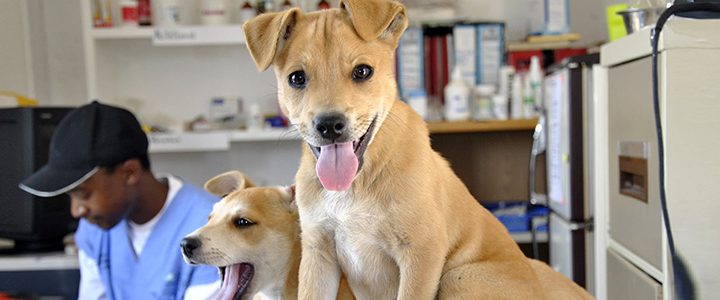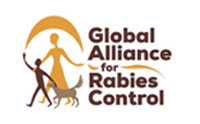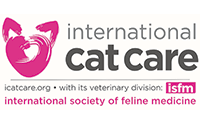
The chance of an owner infecting their pet dog or cat is very low, however it is possible. Hence we predict that as cases of COVID-19 in people continue to occur, so the cases of companion animals will also continue to appear. These animal cases may be inevitable, but they are no cause for additional concern. These are cases of people infecting their pets, there is no evidence that dogs or cats play a role in subsequent transmission to people.
As testing for SARS-CoV-2 in animals becomes possible in more countries¹, we make a plea to the veterinary community to limit their use. Positive test results have no impact on how vets treat symptoms as there are no specific treatments for SARS-CoV-2 in animals. However there is a significant risk of causing unnecessary fear in owners and communities from the media attention each positive case brings. So let’s keep testing resources for controlled and meaningful research studies and for testing for virus in people, where the real risk of transmitting SARS-CoV-2 lies.
Should dogs and cats be tested?
Routine testing of animals is not recommended (e.g. CDC and AVMA). There is only evidence of transmission of SARS-CoV-2 between people and, in very rare cases, from people to companion animals. There is no evidence of transmission from companion animals to people. These companion animals are the victims of this reverse zoonosis (a disease transmitted from people to animals); they are infected but not infectious.
There are no treatments available for COVID-19 in animals, beyond only symptomatic relief. Hence there is no clinical relevance of testing for the individual animal.
Bringing an animal to a veterinary clinic for testing brings the owner and vet into contact. This would be considered necessary if the animal is seriously unwell and there are ways of reducing the potential transmission risk during the consultation. However, cats and dogs infected with SARS-CoV-2 appear to have no to very mild symptoms, so in-person consultation for their health and welfare is unlikely to be necessary.
The current advice for households with people suffering COVID-19 is to self-isolate all members of the household, including pets, and to avoid close contact with people and pets when you have symptoms. As any pet infected with SARS-CoV-2 will have caught the virus from their owners, a positive test result for pets is not required for making a self-isolation recommendation, it will have already been made in relation to the owners suffering from COVID-19. However, if the pet has been removed from a house where its owners were suffering from COVID-19, in an abundance of caution, it should be kept isolated from unexposed animals and handled minimally for 14 days (AVMA).
Although the regents used for testing for SARS-CoV-2 in animals and people are different, and hence there is no competition for these consumables, the PPE and swabs required when collecting samples are the same. Hence there is the potential for animal testing to impact negatively on testing capacity for people.
How to decide whether to test or not?
Whether testing of an individual animal should take place should be a One Health decision, including both human public health and animal health officials (OIE). Vets are encouraged to speak to their local health authority for help with making this decision.
In addition, IDEXX note the following three criteria must be met:
- Pet is living in a household with a human who has COVID-19 or has tested positive for the SARS-CoV-2 coronavirus
- Pet has already been tested for more common infections, which a veterinarian has ruled out
- Pet (especially cats and ferrets) is showing clinical signs consistent with COVID-19
Structured research into SARS-CoV-2 prevalence in animal populations is a valuable use of testing capacity. In such studies, animals are carefully selected for testing and contexts are carefully controlled or measured to ensure maximal information can be drawn from each test. Negative test results are equally valuable to positive and should be published.
What are the consequences of a negative or positive test result?
Before considering testing a companion animal for SARS-CoV-2, there must be a clear understanding of the consequences of both a negative and positive result.
Negative result:
- Inform the animal owner; how and what will you tell them?
- It is extremely likely that a negative RT-PCR means the animal does not have SARS-CoV-2.
- However, a negative result could occur from an error in the way samples were taken or handled.
- Negative results are just as valuable as positive and should be recorded and reported with the same care and attention.
Positive result:
- Inform the animal owner; how and what will you tell them?
- There is no clinical significance for the animal, as there is no specific treatment for SARS-CoV-2.
- An infection of an animal with SARS-CoV-2 is considered a case of an emerging disease and hence must be reported by veterinary authorities to the OIE along with information about the animal, diagnostic test and context. Vets must collaborate with their veterinary authority to establish clear and rapid reporting of test results.
- Because RT-PCR is sensitive to the presence of small amounts of viral genetic material, and doesn’t require there to be live virus present, it does not necessarily imply infectiousness. There is also no evidence of animals infecting other animals outside experimental conditions, and no evidence of transmission from companion animal to person. Hence a positive result does not imply isolation of the animal in addition to the isolation already being imposed on the owners and their household if they are sick with COVID-19. When an animal is moved from a COVID-19 household for care elsewhere, in an abundance of caution, 14 days of isolation from unexposed animals and minimal handling is advised (AVMA), no testing is required to action this recommendation.
- A positive result is very likely to attract media attention. This has the potential to cause unnecessary fear for animal owners and communities living with free roaming animals. As they may not understand the limited implications of this positive result. In extreme circumstances, this could lead to abandonment of pets and retaliation against free roaming companion animals
Footnote 1: What testing methods are available for companion animals?
In the majority of cases, the tests offered for companion animals will be RT-PCR tests for viral genetic material. The following explains this test and its limitations in more detail and two other tests that are being used for companion animals, usually in research contexts:
- RT-PCR: Uses oral, nasal or fecal/rectal samples. Amplifies available genetic material so is very sensitive. However, a positive test doesn’t prove the virus is live, just there is viral genetic material there, which can occur after live virus has been cleared or if there have been contamination of the animal or sample by viral particles. Need to show persistent positive RT-PCR results to show an active infection.
- Virus isolation: This attempts to culture (grow) live virus from swabs, so a positive result implies there is an active infection and there may be a chance of infectiousness, although this depends on viral ‘load’ (amount of virus) and closeness of contact.
- Serology: Uses blood samples to test for the presence of antibodies. A positive result proves there was infection at some point. However, antibodies are slow to become detectable, so not the best markers for active or acute infection.
Resources
- AVMA
- Interim recommendations for intake of companion animals from households where humans with COVID-19 are present
- ‘Handout: Testing your pet for SARS-CoV-2’, available on the COVID-19: AVMA resources webpage
- OIE
About International Companion Animal Management (ICAM) Coalition
ICAM supports the development and use of humane and effective companion animal population management worldwide. The coalition was formed in 2006 as a forum for discussion on global dog and cat management issues.
Our key goals are to:
- Share ideas and data
- Discuss issues relevant to population management and welfare
- Agree definitions and hence improve understanding
- Provide guidance as a collegial and cohesive group
Contact information: info@icam-coalition.org
Twitter: @ICAMCoalition











